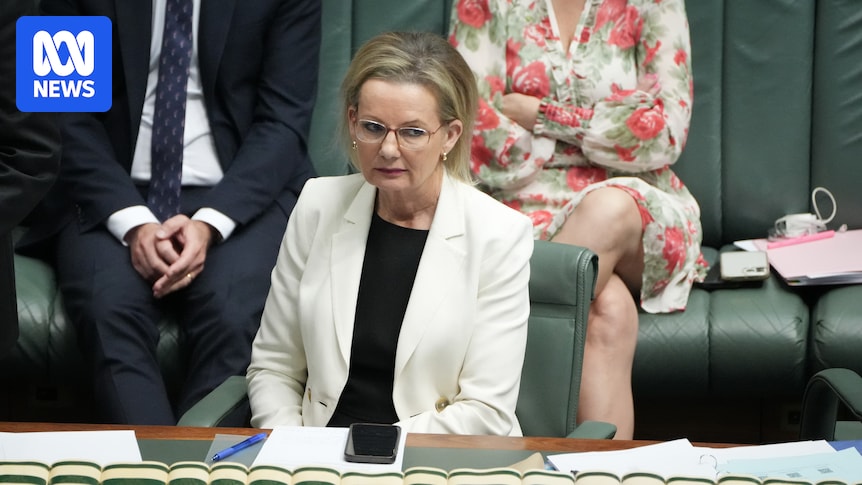
Welcome back to your weekly federal politics update. As Australia’s political landscape continues to evolve, recent events have sparked both controversy and division within Parliament House. The Albanese government is under scrutiny for transparency issues, while the Coalition finds itself embroiled in a debate over the Prime Minister’s choice of attire.
As Sussan Ley attempted to exit a business leaders summit, an adviser intervened to prevent further comments on Prime Minister Anthony Albanese’s Joy Division T-shirt. The incident, however, had already captured media attention. “No, sorry, we’ve got to go,” the staffer insisted, as cameras followed Ley, who reiterated her stance, stating, “I don’t take a backwards step on my comments.”
The T-Shirt Controversy
When Anthony Albanese returned from the United States wearing a Joy Division T-shirt, it quickly became fodder for weekend morning television. Ley later demanded an apology from Albanese, citing the band’s name’s origins from a term used in Nazi concentration camps. Despite Ley’s insistence, her Nationals colleagues, including Bridget McKenzie and Matt Canavan, showed little interest in the matter.
The Coalition appeared divided, with some members focusing on other pressing issues. Tim Wilson, addressing the government’s and Greens’ block on a CFMEU inquiry, faced questions about the T-shirt’s impact on his Goldstein electorate, home to many Jewish Australians. Meanwhile, Ted O’Brien’s attempt to highlight inflation concerns was overshadowed by the ongoing T-shirt saga.
Transparency Under the Microscope
Amid the T-shirt debate, the Albanese government faced criticism from the Centre for Public Integrity, which failed the government on six of seven transparency measures. Concerns about freedom of information laws, “jobs for mates,” and parliamentary accountability have been simmering within the Coalition.
David Pocock seized the opportunity to propose extending Senate Question Time until a report on “jobs for mates” was released. This move challenged the government to embrace greater transparency. However, the government responded by threatening to strip Coalition MPs of deputy chair committee positions, escalating political tensions.
“It is extraordinary that the moment I start talking about transparency that games start being played,” said a frustrated Jane Hume.
Albanese’s International Engagements
While political games unfolded at home, Prime Minister Albanese embarked on a diplomatic tour, attending ASEAN and APEC summits. Meetings with leaders from Japan, Malaysia, the Philippines, Cambodia, and China’s Premier Li Qiang were on the agenda.
Albanese also attended a dinner with US President Donald Trump and other leaders, skipping the final day of the ASEAN summit to arrive early for APEC in South Korea. The dinner, held at a Hilton Hotel in Gyeongju, included leaders from New Zealand, Canada, Vietnam, Thailand, and Singapore.
Albanese received praise for his recent work on a critical mineral and rare earth deal, marking a warm interaction with Trump, whom he had criticized during the election campaign. The dinner prefaced a significant meeting between Trump and China’s Xi Jinping.
Implications and Future Prospects
The T-shirt controversy and transparency issues highlight ongoing challenges for the Albanese government and the Coalition. While the Prime Minister navigates international diplomacy, domestic political dynamics remain complex and contentious.
As Albanese returns to face a potentially hostile Senate, the focus will likely shift to addressing transparency concerns and managing internal party divisions. The coming weeks will test the government’s ability to balance political strategy with effective governance.





